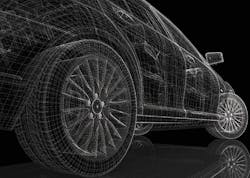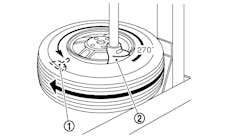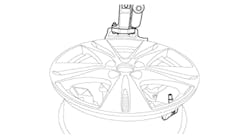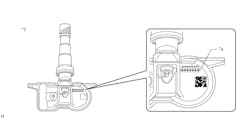Leonardo Da Vinci may have been the first person to love his car. He invented the first self-propelled vehicle in 1478. Had it ever advanced past the drawing board stage, however, it would have been driverless. The invention had neither a steering wheel nor a seat! Da Vinci was evidently fond of the vehicle, not driving it.
With the mass production of Henry Ford’s Model T in 1908, people from almost all economic classes suddenly were able to buy cars. And that’s when the love affair with the automobile (or light truck, SUV or crossover utility vehicle) in the U.S. began to develop.
Owning a car gives most of us a sense of accomplishment and freedom. The love comes from driving it.
Is that love fading? Is America losing interest in driving?
If so, how will that impact the independent tire retailer?
There are no black and white answers to the first two questions, which we need to address before we can answer the third question.
Data from the Federal Highway Administration and Census Bureau indicates the percentage of teenage drivers is decreasing. Whether the cost of buying or driving a car is, in their minds, too high, or they are comfortable relying on their parents to chauffeur them around, fewer teens are seeing their driver’s license as a rite of passage.
On the bright side, the average annual miles driven by a millennial (defined by the Census Bureau as people born between 1982 and 2000) has risen significantly. As teens they may prefer Uber over ownership, but when they eventually do buy cars, they take advantage of it. That bodes well for both replacement tire sales and automotive repair services.
Then there is the push for autonomous vehicles. Last August, Ford Motor Co. announced its intent to have a “high-volume, fully autonomous” vehicle for ride-hailing or ride-sharing services in 2021.
“The next decade will be defined by automation of the automobile, and we see autonomous vehicles as having as significant an impact on society as Ford’s moving assembly line did 100 years ago,” said Mark Fields, Ford CEO and president.
If Fields is correct, that “impact” could be the end of America’s love affair with the automobile. Chances are if you don’t need to drive a vehicle, you won’t own it. Tomorrow’s youth might even learn to live without driving.
The National Highway Traffic Safety Administration is trying to stay ahead of the technology. Its new Federal Automated Vehicles Policy “seeks to speed the delivery of an initial regulatory framework for highly automated vehicles,” or HAVs. Its ultimate intent is to promote automated vehicle technologies that are safe (www.nhtsa.gov/AV).
In the near term, I am sure autonomous vehicles could not protect a passenger any better than a car with a good driver. There are times a driver needs to accelerate to avoid a problem, something an autonomous vehicle would not be able to do, especially if speed limits had to be followed. There are just too many vehicles on the road and too many variables for engineers to consider.
Unless all vehicles on the road are autonomous, and designed to stop before hitting another vehicle, a good driver cannot be replaced.
It may sound like the mass-production of autonomous vehicles is just around the corner, but it is more likely decades away. And even if they become the wave of the future, they will still need tires. They will require different design parameters to enable optimal decision-making by the artificial intelligence systems aboard autonomous vehicles, but tires will remain part of the vehicle.
Miles driven would be down, and so would your sales, but the advent of autonomous vehicles would not lead to the end of the independent tire dealer.
As for the safety aspect, I am not convinced autonomous vehicles would ever be safer. Elon Musk, cofounder and CEO of Tesla Motors Inc., doesn’t agree.
“Self-driving cars are the natural extension of active safety, and obviously something we should do,” he says.
Musk is obviously a fan of Leonardo Da Vinci. ■
If you have any questions or comments, please email me at [email protected].
To read more of Bob Ulrich's editorials, see:
Now That Trump Will Be President... Proactively Offer Your Support or Constructive Criticism
P Zero World Re-Defines the Independent Tire Dealer
The Race for More Sales: Motorsports Involvement by the Manufacturers Isn't Enough




